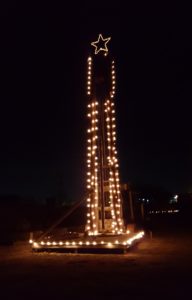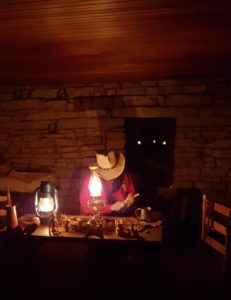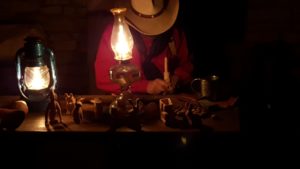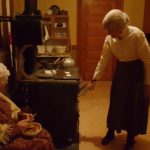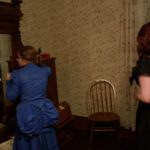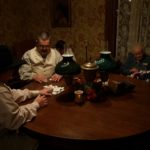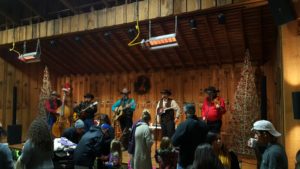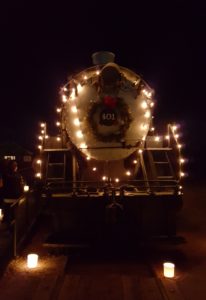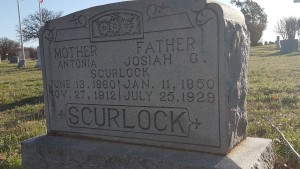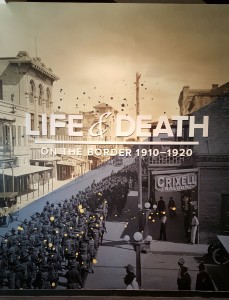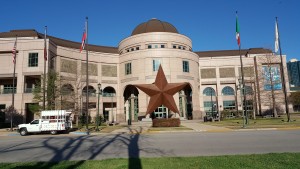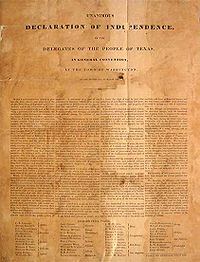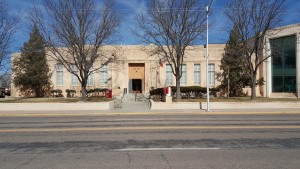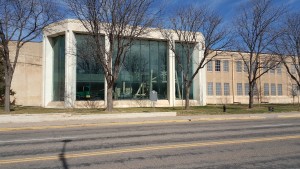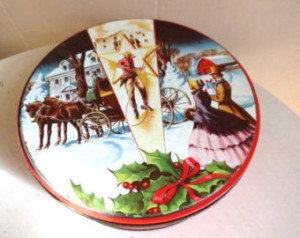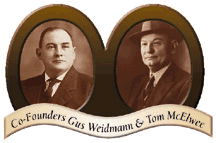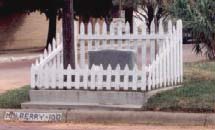Every year the National Ranching Heritage Center hosts Christmas at the Ranch, a look back at how Christmas was celebrated on the Texas Plains throughout the years. For those who are familiar with the facility, a number of structures have been moved to the grounds. They are from different periods of the state’s history and show how life has changed from before Texas became a country to around the 1950s. Which buildings are open varies somewhat from one year to the next, I think depending on how many people are available.
We particularly enjoyed this year’s event. In the past you went through in a line (more or less) single file, and everyone saw the same exhibits in the same order. This year you were free to walk around and see whatever you liked in whichever order you chose. I liked this a lot better. We were able to go where the lines were shortest and still see everything. Well, almost everything. One or two things had shut down before we got to them; my son had marched in a Christmas parade with his high school band before we went.
I’m going to include some photos I took, with a minimum of commentary. I’ve not included some of the better pictures because they contain images of children. I don’t put pictures of my son on the internet, and I’m not going to put pictures of other people’s children up without permission. And since I have no idea how to get it, I’ve made the choice not to include those shots. 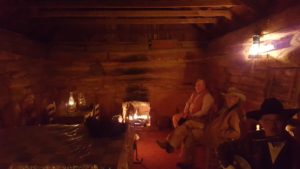 Any photos containing children will only show them from the back.
Any photos containing children will only show them from the back.
The photo on the right shows a group of cowboys in the Matador Half-Dugout (1888). They were singing Christmas carols when we looked in the door. The dugout was built into the side of a hill, with most of the walls and ceiling covered by dirt.
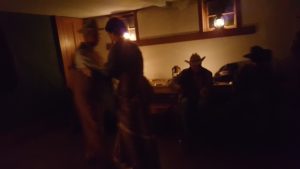 Here’s a shot of a Christmas dance at a structure called Las Escarbadas (1886). There were signs describing each structure, where it was originally built, and the time period when it was used. I tried taking a few photos, but they didn’t turn out very clear. I know better than to rely on my memory at this date, and I don’t have the handout that names each structure. Fortunately, the Center has an online map that gives the names and dates of the exhibits.
Here’s a shot of a Christmas dance at a structure called Las Escarbadas (1886). There were signs describing each structure, where it was originally built, and the time period when it was used. I tried taking a few photos, but they didn’t turn out very clear. I know better than to rely on my memory at this date, and I don’t have the handout that names each structure. Fortunately, the Center has an online map that gives the names and dates of the exhibits.
This next set of photos were taken at the Harrell House (1887, 1900, 1917). To minimize white space, I’ve posted this set as thumbnails. Click on the images to see the full photo.
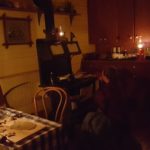
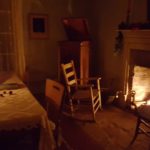
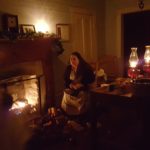 The cowboy in these two shots is hand carving Christmas presents in the Masterson JY Bunkhouse (1879). While wood was scarce on the Caprock (where the NRHC is located), it was available in most parts of the state. Because early settles often had little or no money, they either had to barter or make much of what they needed. Toys were no exception. Many men were skilled at carving.
The cowboy in these two shots is hand carving Christmas presents in the Masterson JY Bunkhouse (1879). While wood was scarce on the Caprock (where the NRHC is located), it was available in most parts of the state. Because early settles often had little or no money, they either had to barter or make much of what they needed. Toys were no exception. Many men were skilled at carving.
The centerpiece of the National Ranching Heritage Center’s Foy Proctor Park, which is where the buildings and other outdoor exhibits are, is the Barton House (1909). It was the only exhibit that had a substantial line while we were there. I’ve only included a few shots because most of the scenes contained children, including the Christmas tree and the ladies quilting. Candlelight at the Ranch is very much a family oriented event, and many of the scenes portrayed family groups. Again, except the shot of the house, the images below are thumbnails. Click to see the full photo.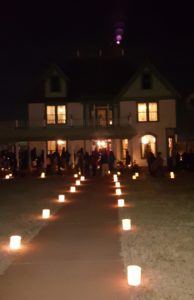
The only other structure with electricity was the 6666 Barn (1908). This is where you can buy hot chocolate or cider, the kids can write a letter to Santa, and there was live music.
All and all, the exhibit this year was quite enjoyable. I hope the NHRC keeps the format they adopted this year of allowing the visitors to walk about freely rather than going through single file.
For anyone interested in learning more about the national Ranching Heritage Center, there’s an app that lets you see the exhibits. The link is at the bottom of their homepage.

